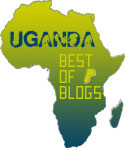peace in five questions, part two
I agree with much of what Jackfruity wrote, as well as 27th Comrade's ideas that reconciliation is likely a more effective way of addressing communal needs and building a holistic, regional peace. However, I have four comments regarding Jackfruity's and Comrade's ideas regarding: the ICC as a player; traditional vs. western justice; lack of UPDF indictments; and what can be done by Ugandans to regain their voice in the process.
1. Comrade and Jackfruity, and many many others, hold an underlying assumption that the ICC is a player like the GoU or LRA. This assumption leads to the common notion that the ICC can simply pull out in the interest of peace, if it so pleased. The issue I take is that this assumption is false. The ICC is *not* another player; rather, it is a legal institution that is bound by a very strict mandate, the Rome Statute, signed by 100+ countries, including Uganda. The ICC, ICC Judges, and Prosecutor Moreno-Ocampo do not have the legal ability to start or stop cases at their whim, as a political institution might (as any government could start a war). The closest the ICC comes to being a political institution is when it is referred to a case through a UN Security Council Resolution (Article 13, as in Darfur), which of course is *not the ICC's decision* but that of political actors. The ICC has very little discretion in how it acts, and in the case of Uganda, it consistently exercised that discretion to provide as much room and backing for the peace process (another discussion we can leave for another time).
It seems to me that it would be more helpful not to question the ICC's motives as a player, but rather to understand its mandate and how to work within it. In other words, how can Uganda utilize the complementarity regime, which states that the ICC complements local systems and only acts when those systems are unwilling or unable to do so? Understand the ICC rules, look for the interests of the actors (GoU, LRA, etc.) then find creative options. There are plenty out there.
2. The larger question question of "traditional" vs. "western" justice is, of course, a major one in an ongoing academic discussion. Practically, though, it is an issue that can be addressed by establishing traditional methods within the legal framework of the state. Again, the ICC is a legally-ratified institution, bound to its mandate. This mandate cuts both ways, of course: if the GoU can legalize and implement genuine national proceedings that utilize traditional justice methods, then the ICC must respect it. The ICC must act upon its mandate as it is a court, not a political player.
3. Jackfruity also commented on the lack of UPDF indictments, something which many cite as evidence of the ICC's bias in favor of the GoU. I disagree with her suggestion that the "government will never give up its precious military men to the ICC." This comment insinuates either a) M7 has a say in who the ICC indicts (patently false) or b) the ICC takes into account the practicality of arrest when making indictments (also false, as shown by indictments against the LRA and the Sudanese official re: Darfur).
Again, I would refer to the Rome Statute, the ICC's mandate, which addresses the crimes within the court's jurisdiction (Article 5). This has consistently been interpreted strictly, that the ICC will only pursue those most responsible for the *gravest* crimes. Essentially, what this means is that the ICC is not pursuing crimes that are really bad, but the worst of the worst. During investigations in Uganda, ICC investigated the claims of UPDF crimes. Their conclusion? UPDF crimes occurred. HOWEVER, both the number and gravity of these crimes paled in comparison to that of the LRA. If the ICC were to indict UPDF for these crimes, they would be setting a very dangerous precedent of significantly lowering the threshold for indictable crimes (and going against the mandate, of course). The ICC was created as a court of last resort to address the gravest crimes, not a court to address all crimes committed. The UPDF undoubtedly committed crimes, and they ought to be brought to justice. However, these crimes are not anywhere near as grave as those committed by the LRA, and the crimes fall outside the legally-binding mandate of the ICC.
4. Finally, a comment about what can be done. Many Ugandans are pissed off, and rightfully so. As the grass beneath two fighting elephants, they are trampled without any say in the process. Without the ability to choose, without the real ability to act, it is easy to feel helpless. The ICC involvement has exacerbated that sentiment, of course, seemingly thrusting itself upon the situation without allowing the people any say in the matter. In other words, many Ugandans feel they have no autonomy, no ability to make decisions about the situation.
So what can be done? I would suggest that Ugandans search for ways to empower their decision-making abilities regarding the situation, to find ways in which they can bolster their voice and power in the decision-making process. One strong option, as I described above, is to utilize the complementarity regime of the ICC. The ICC can only act when the government is unable, or unwilling, to hold genuine national proceedings: this is a three-part test that Ugandans can utilize to bring justice back into their own hands. Create a local framework that a) is genuine, i.e. not a sham; b) the government can undertake; and c) the government *will* undertake. I can envision a special law enacted in Parliament that creates a hybrid framework incorporating traditional and punitive justice. Show it's genuine, show the parties are willing to accept it and go through with it, and the ICC will not have jurisdiction any longer.
You want to regain your decision-making power? Great, it can happen. Understand the rules, understand the interests of the parties involved, and create a system reflects that situation. Then go and do it - I'm all for it!
He's definitely reshaped my ideas about the ICC, as well as given me hope for the peace process.
Labels: conflict, ICC, northern uganda






